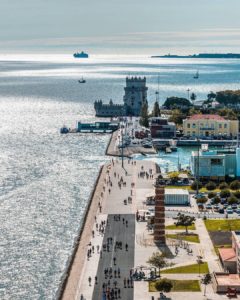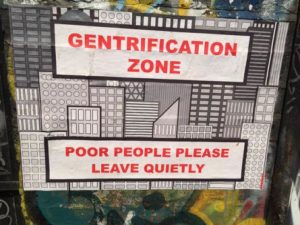Lisbon is more expensive than Barcelona, Madrid, or Milan
Portugal’s property market is booming but the damage inflicted on the social fabric of the big cities is profound. Unaffordable rents and purchase prices are hitting not just those on subsistence prices and pensions, but ordinary workers and their families.

The actual situation can be traced to the 2008 debt crisis after which the country was required to deregulate in order to entice foreign investment. In 2012 the former conservative government of Passos Coelho liberalized the real estate sector. Within five years rents in Lisbon skyrocketed.

That same year the golden visa program was ushered in offering residency permits in exchange for real estate acquisitions worth 500,000 euros or more.
A separate ‘non-habitual residency scheme’ was also brought in, which gave foreign citizens, who spent half a year in the country, a 10-year tax break on income earned elsewhere. As interest from abroad began to grow, demand outstripped supply pushing house prices up and people with average income out.

Besides the golden visa program and the non-habitual residency scheme, the expansive growth of Airbnb-style short-term rentals (Alojamento Local) in the urban centers further reduced the housing supply.

Portugal is among the EU countries where housing prices almost doubled in the last decade. Between 2010 and 2022 sales prices went up by 80% while rents rose by 28%. In the eurozone increases during this period were respectively 50% and 18%. Even last year the prices of residential property in the country rose 19% , the biggest increase in 30 years.

Buying or renting a house in Lisbon these days is becoming even more expensive than in some of the main European cities. Last year the average price per square meter of houses for sale in the capital surpassed that of Madrid, Barcelona, and Milan and only in Paris and Milan is renting a house more expensive than in Lisbon.

Although the Socialist Government of António Costa recently approved a National Housing Program allocating nearly 3 billion euros – thanks to EU funding from Brussels – to reinforce the public housing stock until 2026, associations that fight for the right to housing consider that the program is not enough to solve the problem.

‘Moreover, we identified some gaps in the bill, from benefits for certain groups (rich foreigners who can buy at prices that Portuguese families cannot afford) to the exclusion of migrants and refugees’, declares Maria João Costa, on behalf of housing rights organization Habita.

For this year a slowdown in the rise of house prices is expected. According to Moody’s house prices may fall by up to 3% whereas S&P Global Ratings predicts that Portugal will be one of the European countries that will feel the most intensive fall in house prices (-4.4%) this year.
Enjoy the week Aproveite a semana (pic Público/Sapo)

 Few destinations have witnessed a boom in tourism like Portugal. According to UN World Tourism Organisation (UNWTO) the country welcomed nearly 7 million international arrivals in 2010. By 2016 that figure had tripled.
Few destinations have witnessed a boom in tourism like Portugal. According to UN World Tourism Organisation (UNWTO) the country welcomed nearly 7 million international arrivals in 2010. By 2016 that figure had tripled. The 10 million visitors to the capital – almost as many as the entire Portuguese population –generated last year almost
The 10 million visitors to the capital – almost as many as the entire Portuguese population –generated last year almost  More than
More than The number of short term rentals –in Portugal registered as alojamento local (AL) – has even overtaken
The number of short term rentals –in Portugal registered as alojamento local (AL) – has even overtaken